I’ve tried both portable and fitted air conditioning at home in a heatwave, and I have a clear favourite
Let's weigh up the pros and cons

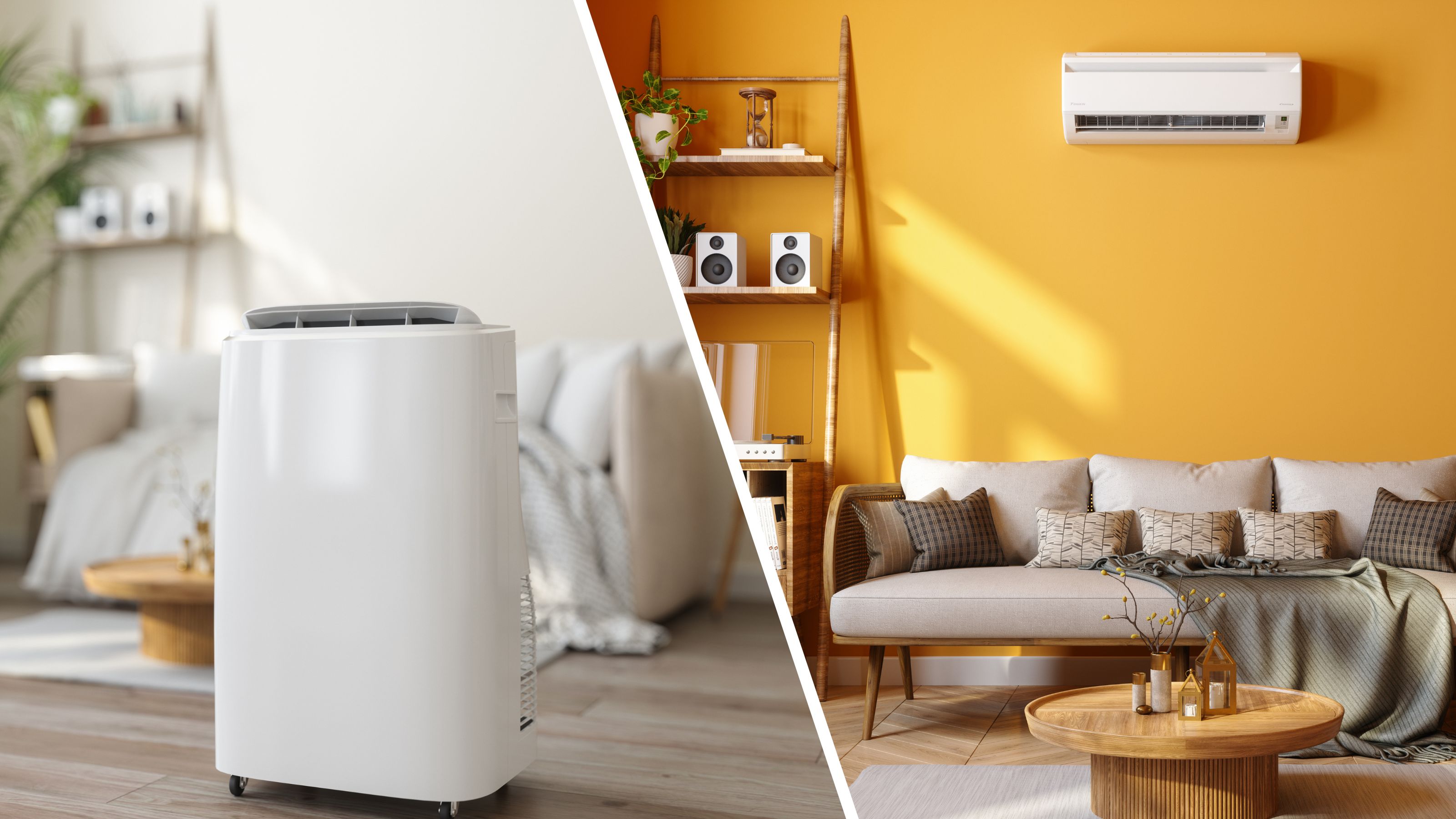
Sign up to our newsletter for style inspiration, real homes, project and garden advice and shopping know-how
You are now subscribed
Your newsletter sign-up was successful
As another heatwave takes hold, it's no wonder that we're all trying to find effective ways to keep cool. And there's arguably nothing more effective than air conditioning — but should you go for one of the best portable air conditioners or opt for fitted air conditioning in your home?
As someone who has tried both options, I've compared their pros and cons, and asked an industry pro which is best.
Which is better - fitted or portable air con?
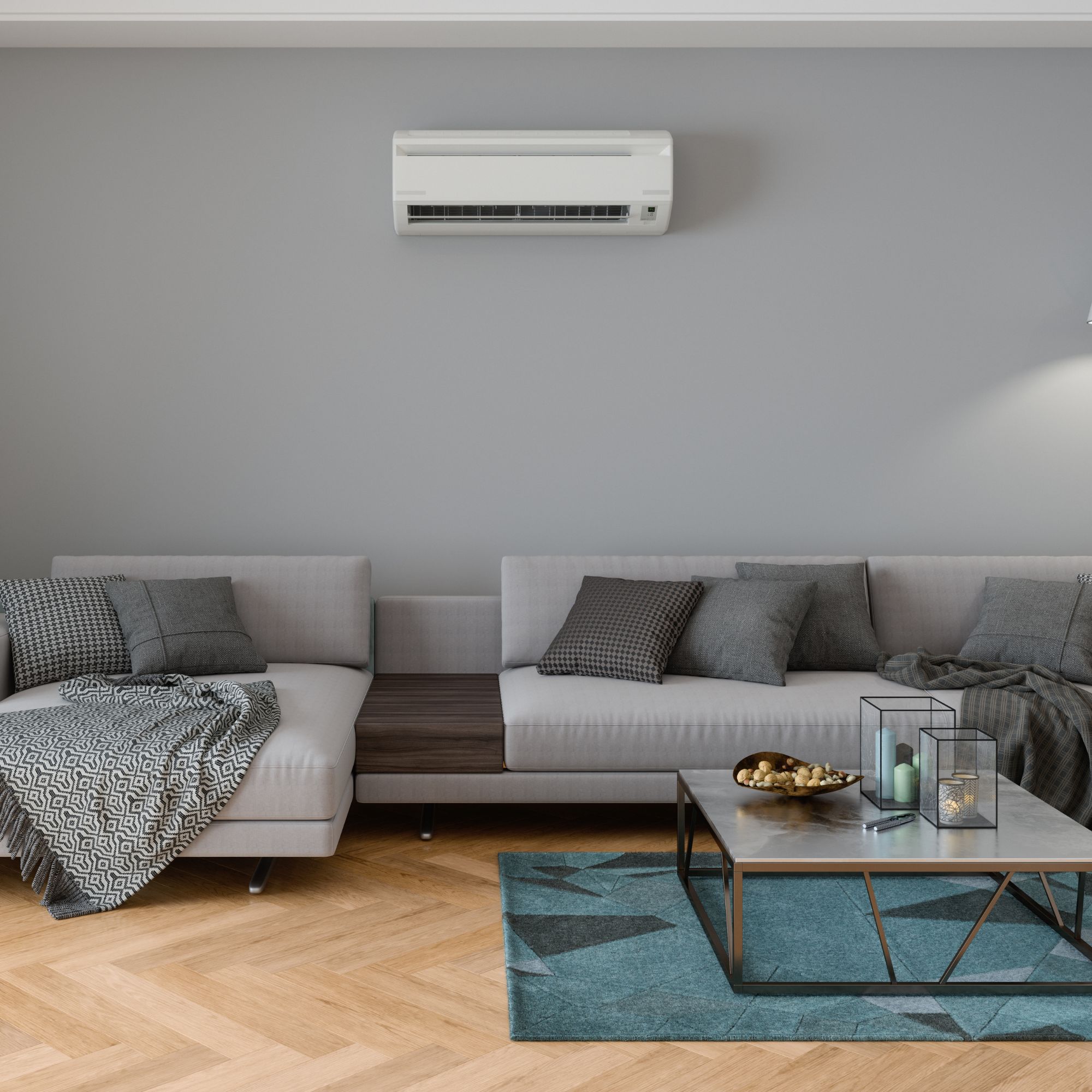
Both fitted and portable air con have their own set of advantages and drawbacks, so which is best will ultimately depend on how you want to use it, where you live and your budget.
Let's look at those pros and cons.
Pros and cons of fitted air conditioning
Fitted air conditioning systems involve the installation of an indoor and outdoor unit.
A single split system, with one indoor and outdoor unit, is sufficient to cool one room, but you'll need a multi-split system (which comprises of one suitably powerful outdoor unit, and multiple indoor units) if you want to cool more rooms.
Pros:
Sign up to our newsletter for style inspiration, real homes, project and garden advice and shopping know-how
- Wall-mounted rather than floor-standing
- Can be used for heating as well as cooling, giving the system year-round purpose
- Not as expensive as you might think
- Once installed, no further set-up is needed
- Effective
- Easy, quick ordering and installation using companies like BOXT and iHeat.
- Quiet operation.
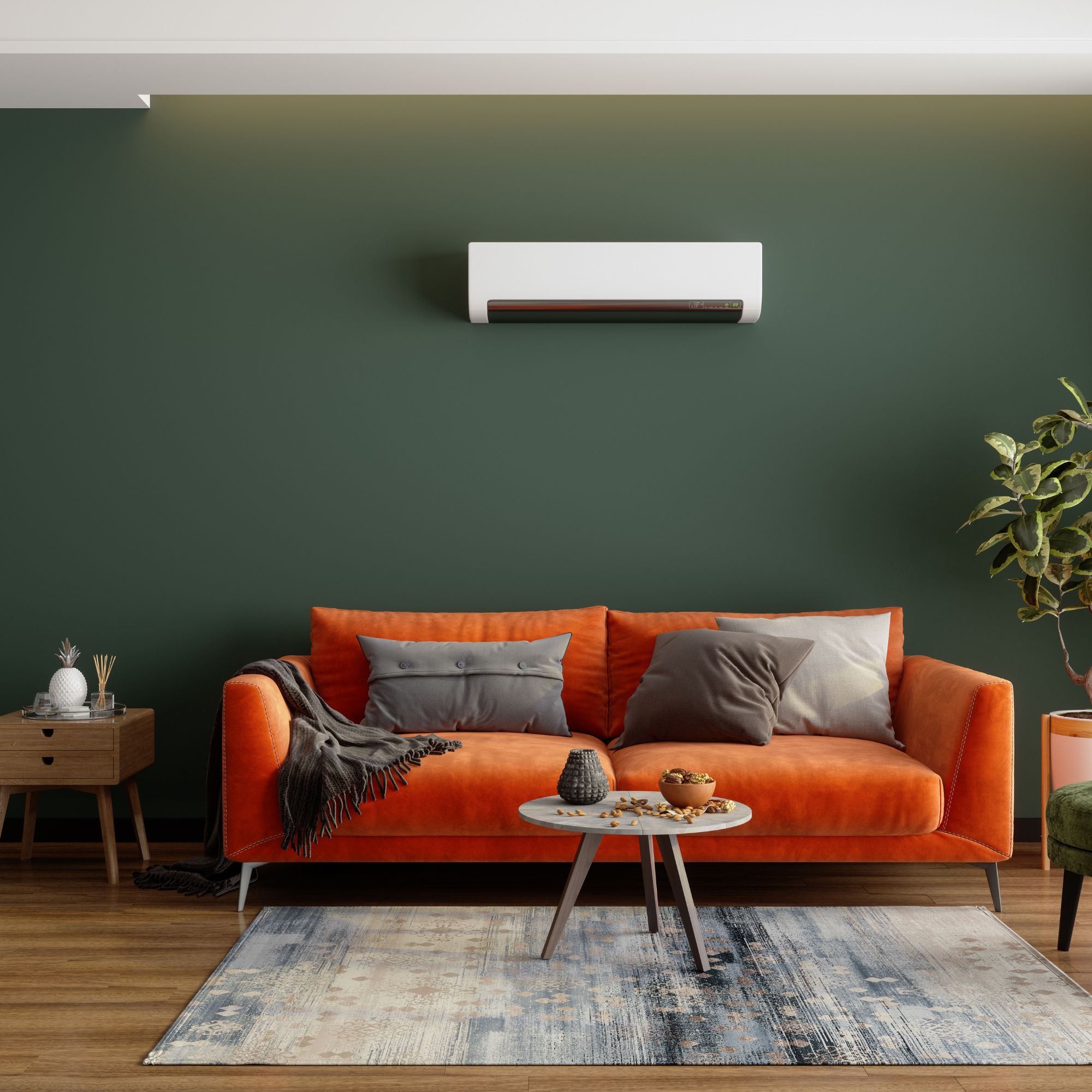
Cons:
- More expensive upfront cost than a portable unit
- Needs professional installation
- Could have higher running costs than a portable unit
- Needs annual servicing to keep it working optimally
- Not suitable for rentals
- You have to have a large unit installed outside
- And those living in flats or apartments could face higher installation costs than those in houses due to the added complexity of installing that outdoor unit at height
- A permanent indoor unit will impact on the aesthetics of your home
- Can’t move it to different rooms.
Pros and cons of portable air con
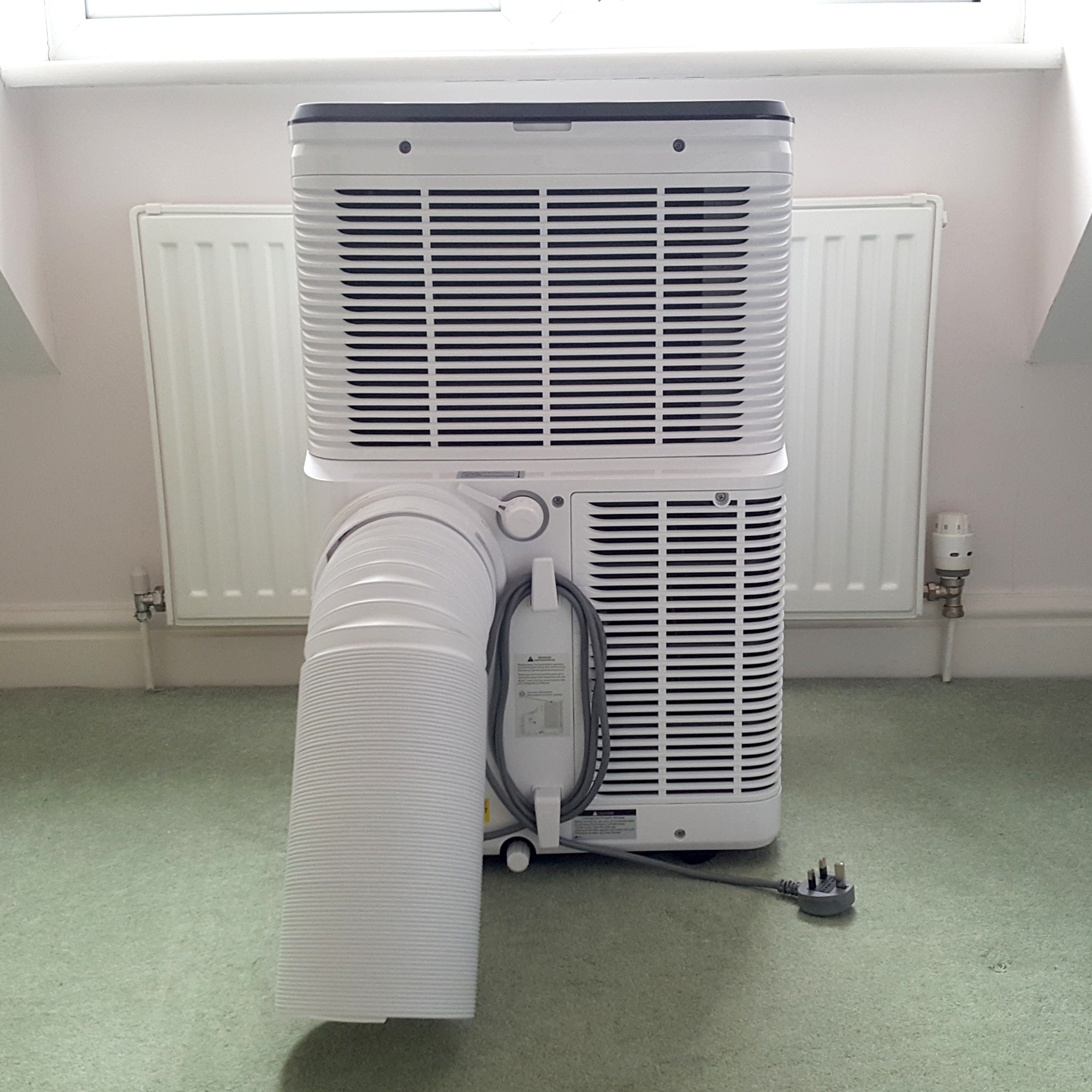
Portable air conditioners have grown in popularity and often sell out whenever a heatwave hits. Along with the unit itself, your portable air conditioner will come with a large exhaust tube which is needed to expel the hot air out of the window.
As the window needs to be open to do this (which can seem a little counter-productive), you will need a window kit, like this bestselling AC window seal kit, £23.99 from Amazon, in order to create a seal around the open window to improve efficiency.
Units may have fan and dehumidifier modes too, but don't have a heating mode.
Pros:
- Can be moved to different rooms when needed
- Less expensive upfront cost compared to fitted air con
- Many models can also be used as a fan and dehumidifier
- Suitable for rentals
- No professional installation needed
- No outdoor unit needed
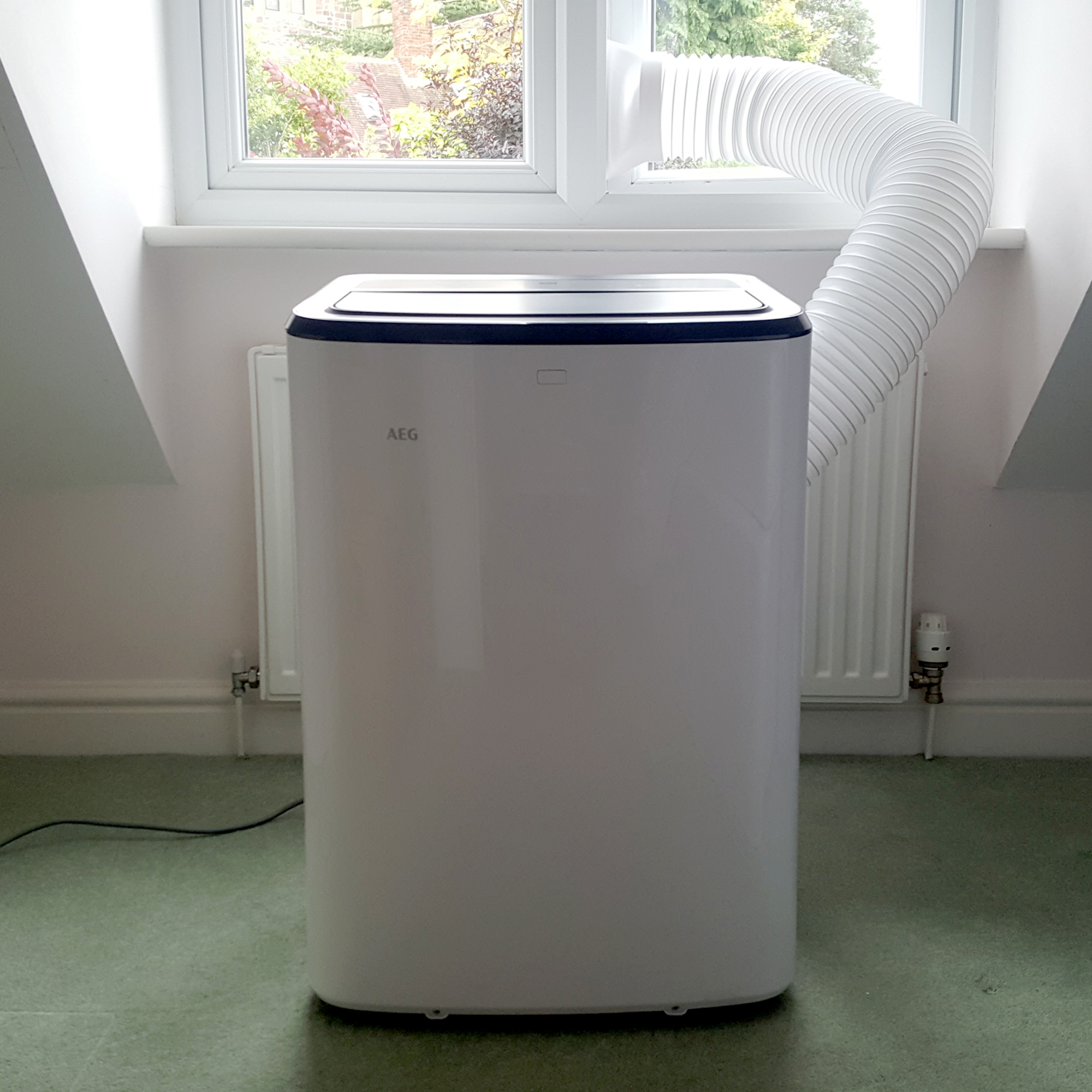
Cons:
- Often sell out during heatwaves
- Needs venting out of a window with the help of a window venting kit (and if you want to move it around your home with you, you will also need to move what you need in order to vent it out of another window).
- You'll need to set it up and vent it out of the window every time you want to use it
- Noisy to use
- Heavy to manoeuvre (especially up stairs)
- Only used in height of summer (and bulky to store)
- Floor-standing so can feel like clutter.
Should I go for fitted or portable air con?
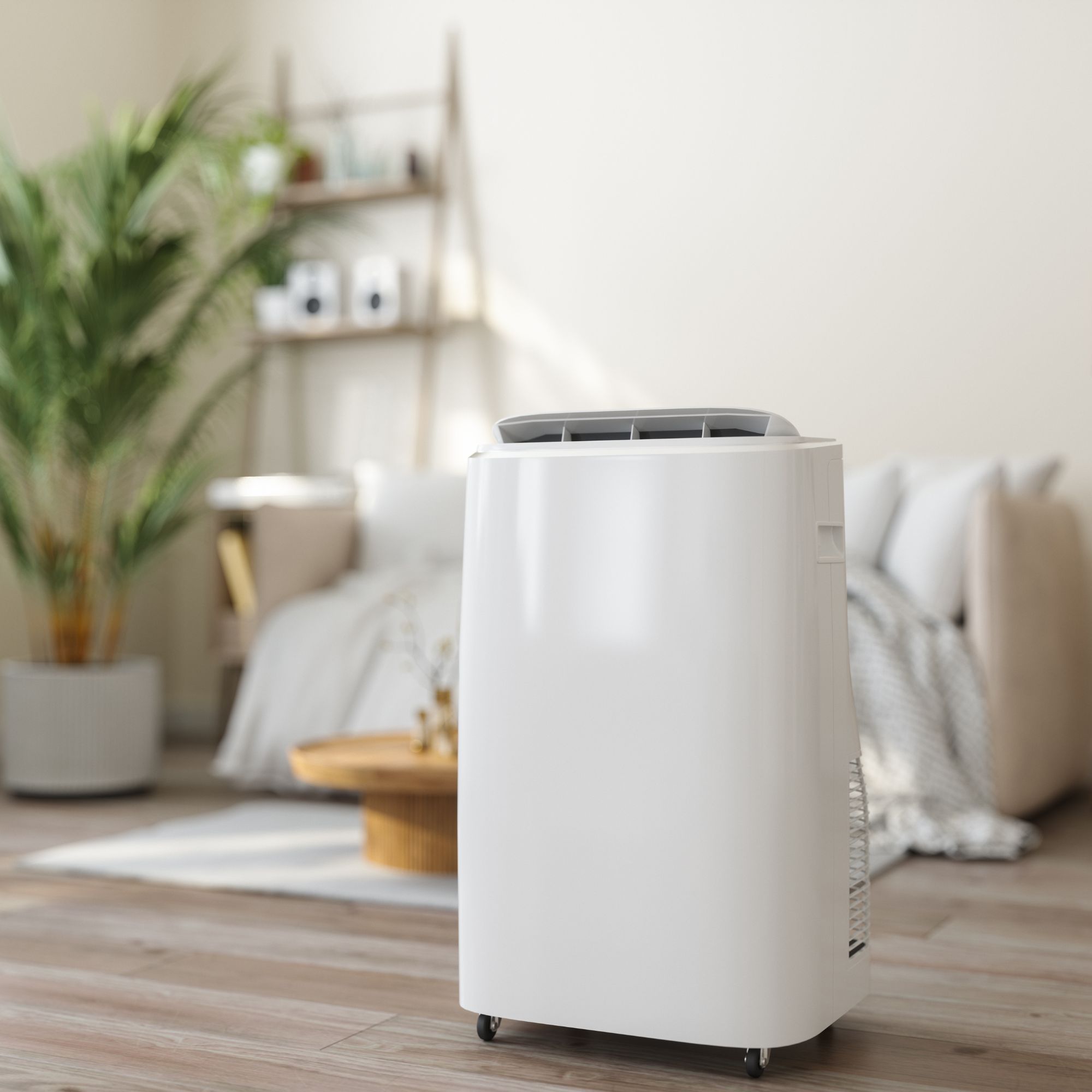
In many cases, your circumstances might make the decision for you. If you are renting, it's unlikely you'll be able to opt for a fitted air con solution, in which case a portable air con unit is the way to keep you cool when temperatures rise.
Similarly, if you want a solution you can move around your home (albeit with the help of someone else), and having wall-mounted air conditioning in more than one room is out of your budget, then a portable unit is likely to be a better fit.
On the other hand, if the noise of a portable unit and its bulk puts you off, then a fitted solution could be much more up your street.
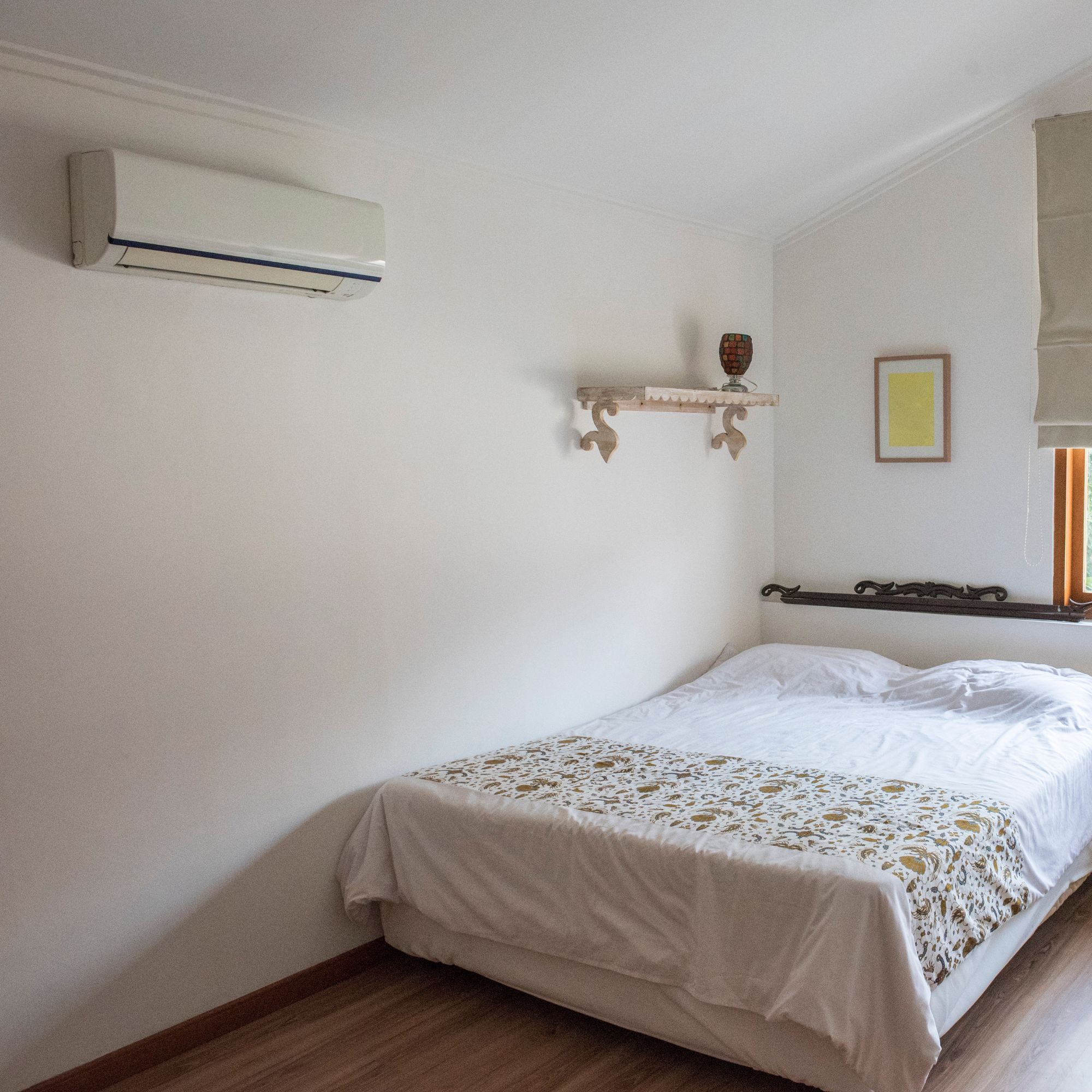
As someone who has tried both a portable air con unit and a fitted air conditioning system at home, for me there is one that has the edge over the other, and that's the fitted air conditioning system. I had BOXT air conditioning installed, and the quiet operation coupled with the wall-mounted indoor unit, make it a clear preference over the noisier portable unit that I would have to vent out of the window.
While it's not a portable option, I did install it in the living room which gives me the most flexibility. I can work, relax, entertain and sleep in the space, so I don't necessarily feel like I am missing out on not having AC in other rooms. (With hindsight, it was a bit of a mistake not to go for a multi-split system with a unit in the lounge and in the master bedroom).
I also really like that I can also use the AC for heating in the winter, as that year-round use makes a fixed option more viable.
While the permanent addition of an indoor and outdoor unit might be off-putting for some, I've found that the comfort it offers on scorching days and toasty nights more than makes up for the compromise I've had to make on aesthetics.
Which is more energy efficient?
Fitted air conditioning systems are more energy efficient than portable alternatives, requiring less output to achieve the same level of cooling. Portable units have to work harder and longer to cool to the same extent, so while they might seemingly have lower running costs, using them for longer and on a more powerful setting may actually end up costing you more.
Hamid Salimi, Residential Product Manager at Daikin UK, says: ‘What many people don’t realise is air conditioning provides the same environmentally friendly technology as a heat pump. Air conditioning systems offer a way to efficiently heat and cool a home using energy extracted from the outside air, by utilising renewable energy from the air, air conditioning runs on electricity, reducing the reliance on fossil fuels and lowering carbon emissions, contributing to a greener environment.‘
Is air conditioning necessary in the UK?
As summers get warmer and cooling solutions become more readily available, then you might be wondering whether fitted air conditioning is worth it. But as industry experts explain we can see air conditioning (also known as air-to-air heat pumps) becoming more commonplace in the UK.
Daikin UK's Hamid Salimi says: 'As the UK experiences hotter temperatures and more frequent heatwaves, homeowners are looking for new ways to future-proof their properties and maintain comfortable temperatures throughout the year.
‘Modern, well insulated homes are built to retain heat, meaning they are great for winter, but problematic in the summer,' he explains. 'The number of UK homes overheating in summer quadrupled to 80% over the past decade* encouraging the uptake in air conditioning as homeowners look for a solution to provide all year-round comfort.’
If you decide a fitted solution is right for your home and lifestyle, then the next step is to find out how much it costs to install air conditioning.

Sarah Handley is Ideal Home’s Renovation and Home Editor. She joined the team full time in September 2024, following three years of looking after the site's home finance content. As well being well versed in all things renovation, Sarah is also a home energy expert, covering all aspects of heating and insulation as well as tips on how homeowners can reduce their energy usage. She has been a journalist since 2007 and has worked for a range of titles including Homebuilding & Renovating, Real Homes, GoodtoKnow, The Money Edit and more.